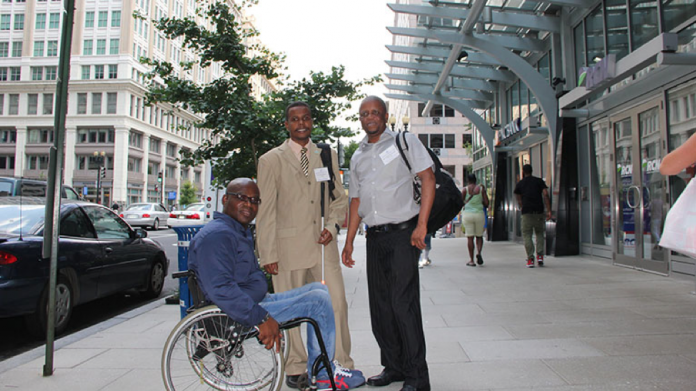Greater progress on diversity and inclusion essential to rebuild productive and resilient workplaces
One-in-four people do not feel valued at work and those who do feel included are in more senior roles, according to a new report on diversity and inclusion by the International Labour Organization (ILO). High levels of equality, diversity and inclusion are associated with greater innovation, productivity and performance, talent recruitment and retention, and workforce well-being. However, the report’s survey found that only half of respondents said that diversity and inclusion were sufficiently identified and resourced in their workplaces’ culture and strategy. Only a third of enterprises currently measure inclusion, although doing so is essential for progress.
Previous studies on diversity and inclusion have tended to focus on large, often multinational companies, in western, high-income countries. The new report, Transforming Enterprises through Diversity and Inclusion, focuses on enterprises of all sizes in lower-middle-income and upper-middle-income economies and gathers information from a diverse mix of staff, managers and senior executives. It reflects variety in age, gender, sexual orientation, ethnic/racial/religious groups, persons with disabilities and those with HIV. The study found that the feeling of workplace inclusion was more likely to be associated with seniority than personal background or characteristics such as age, gender, or ethnicity/race/religion. 92 per of senior staff said they felt included, and that diversity was respected and valued at work, compared to 76 per cent of lower-level respondents. The workforce in medium-sized, large and multinational enterprises were also more likely to feel positive than those in small and national enterprises.
“An equal, diverse and inclusive workplace is a key driver of resilience and recovery.”
Manuela Tomei, Director, ILO Conditions of Work and Equality Department
Diversity and inclusion play a “critical role… in the high performance of the workforce, businesses, economies and societies globally,” the report says. “If inclusion remains a privilege experienced only by those at senior levels, enterprises risk missing out on… considerable benefits.” Only a quarter of respondents reported that women made up a critical mass (40-60 per cent) of top management, and a third said there were no people with disabilities at senior level. Some minority groups also report constantly fewer positive experiences with inclusion, and these groups also tended to be clustered in more junior staffing levels. “The COVID-19 pandemic exposed and exacerbated existing inequalities in our economies and societies. An equal, diverse and inclusive workplace is a key driver of resilience and recovery,” said Manuela Tomei, Director of the ILO Conditions of Work and Equality Department.
The study’s information was gathered between July and September 2021, during the COVID-19 pandemic, from more than 12,000 employees in 75 countries in five regions. Two-thirds of respondents reported that since the start of the crisis the level of focus and action on diversity and inclusion in their workplaces had increased. A similar proportion said the pandemic had increased their expectations on employers to promote diversity and inclusion.
The report says that the most likely way to influence more enterprises to create sustainable and transformational change is by combining the business case for diversity and inclusion with policies and legislative frameworks and supportive enterprise values. It outlines four key principles for achieving transformational and sustainable change which are applicable globally and to all workforce groups and levels: diversity and inclusion should be a priority and part of strategy and culture; there must be diversity in top management; senior leaders, managers and staff must be accountable as role models; and actions must apply throughout employment – covering recruitment, retention and development.
“The ILO is working with constituents to improve levels of diversity and inclusion in workplaces,” said Deborah France-Massin, Director of the ILO Bureau for Employers’ Activities. “Employees need to feel they are valued, respected, fairly treated and empowered through inclusive business practices, inclusive organizational culture and inclusive leadership. It is this transformational approach to diversity and inclusion that makes significant contributions to overall business performance.”
The new ILO report defines “inclusion” as the experience people have in the workplace and the extent to which they feel valued for who they are, the skills and experience they bring and the extent to which they have a strong sense of belonging with others at work.




















